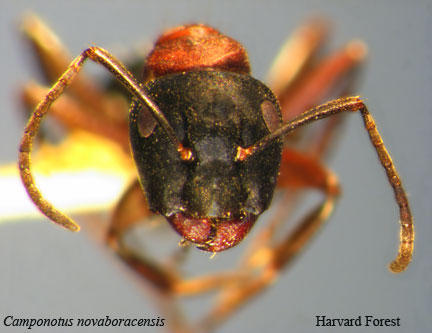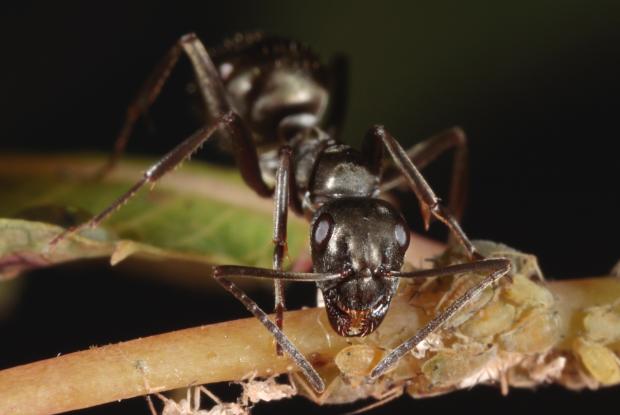Ants are important for ecosystem balance, as they play a crucial role in soil aeration and nutrient recycling. Their tunneling activities help aerate the soil, allowing oxygen and water to reach plant roots easily.
Additionally, ants are efficient decomposers, breaking down organic matter and releasing essential nutrients back into the soil. This process enriches the soil and contributes to healthy plant growth. Ants also help control pest populations by preying on insect larvae, thus acting as natural pest controllers.
Overall, the presence of ants in an ecosystem has far-reaching benefits that contribute to its overall health and sustainability.
The Importance Of Ants
Ants are small insects, but their ecological value is immense. They play a crucial role in maintaining the balance of various ecosystems and contributing to the overall health of the environment. Below are some key reasons highlighting the importance of ants:
Ecosystem Balance
Ants contribute to the ecosystem balance by preying on a variety of insect pests and regulating their populations. This natural pest control helps maintain the equilibrium of various plant and animal species within the ecosystem.
Soil Health
From building intricate tunnels to aerating soil, ants play a vital role in maintaining soil health. Their tunneling activities facilitate water infiltration, nutrient cycling, and enhance soil structure, promoting the growth of plants and microorganisms.
Seed Dispersal
Ants aid in seed dispersal by collecting and relocating seeds to new locations. This activity contributes to plant diversity and assists in the regeneration of vegetation in different areas, ultimately supporting the resilience and sustainability of ecosystems.
Decomposition
Ants are essential in the process of decomposition as they break down organic matter and contribute to nutrient cycling. By fragmenting and moving organic materials, they facilitate the breakdown of dead plant and animal matter, which enriches the soil and sustains the overall ecosystem.

Credit: harvardforest.fas.harvard.edu
Ants As Ecosystem Engineers
Ants play a crucial role in shaping their environment, earning them the title of ‘Ecosystem Engineers’.
Nest Building
Ants construct complex underground nests that improve soil structure.
Aeration Of Soil
Ants tunnel through the soil, allowing air and water to penetrate deeper layers.
Nutrient Cycling
Ants carry and distribute organic matter, enhancing soil fertility.
Ants And Agriculture
Ants play a crucial role in agriculture, benefiting both farmers and ecosystems. They contribute to pest control, pollination, and seed harvesting, making them vital to the health of our food systems.
Pest Control
Ants help control pests by feeding on insect eggs and larvae, reducing the need for chemical pesticides.
Pollination
Ants aid in pollination by moving pollen from one plant to another, promoting the growth of fruits and flowers.
Seed Harvesting
Ants collect and disperse seeds, helping in the germination and growth of various plant species.

Credit: www.youtube.com
Ants And Human Society
The role of ants in human society is often overlooked, but these tiny insects play a crucial role in maintaining ecosystems and agricultural productivity. Ants are important for seed dispersal, soil aeration, and pest control, making them essential for a healthy environment and sustainable food production.
Ants play a crucial role in human society, impacting various aspects of our lives. From being a source of food to inspiring medical research and technology, the significance of ants reaches far beyond their size. Let’s explore the essential roles these tiny creatures play in our daily lives.“`htmlAnts As Food
“` Ants are consumed as a delicacy in various cultures around the world. In many regions, these insects are considered a rich source of protein and are incorporated into traditional dishes. Their consumption also aligns with sustainable food practices, as they are abundant and easy to harvest.“`htmlMedical Research
“` Researchers study ants to gain insights into their remarkable ability to heal from injuries and fight off infections. The approach of exploring their immune systems has contributed to advancements in wound care and the development of antibiotics. Ants’ resistance to diseases has provided valuable information for improving human health.“`htmlInspiration For Technology
“` The structure and behavior of ants have inspired the design of decentralized algorithms and networks, known as “ant-based algorithms.” These algorithms are utilized in various technological applications, such as network routing and optimization problems. Additionally, the study of ant behavior has influenced the development of autonomous robotic systems, contributing to advancements in artificial intelligence. Modeling after ants has led to innovative solutions in technology.Ants have significantly influenced our lives through their contribution to food culture, medical advancements, and technological innovation. Understanding the roles they play in these areas provides insights into the interconnectedness of nature and human society.
Credit: www.facebook.com
Frequently Asked Questions For Why Is Ant Important
Why Are Ants Important In The Ecosystem?
Ants play a vital role in the ecosystem as they help with seed dispersal, soil aeration, and nutrient recycling. They also prey on harmful insects, thus acting as natural pest control, and contribute to the decomposition of organic matter.
How Do Ants Communicate With Each Other?
Ants use chemical signals called pheromones to communicate with each other. These pheromones are secreted by glands in their bodies and are used to mark trails, attract mates, and signal danger. Ants can follow the pheromone trails laid down by their fellow ants to find food sources and navigate back to their colonies.
What Do Ants Eat?
Ants are omnivorous creatures and their diet varies depending on the species. While some ants feed on other insects, dead animals, and plant matter, others consume nectar, honeydew, and sweet substances. They are also known to tend to “ant cows” like aphids and scale insects, which produce honeydew for the ants to feed on.
Conclusion
In sum, ants play crucial roles in maintaining ecological balance and contributing to agriculture. Their teamwork and resilience make them essential to the environment. Understanding the significance of ants can lead to greater appreciation for the intricate web of life on our planet.
So, it’s clear that ants are truly important creatures.

I’m MD Tanvir, and I bring years of expertise gained from working closely with pest control companies to the forefront. My journey in the industry has inspired me to launch Bug Battler, a platform aimed at equipping people with the know-how to combat pests autonomously. Through Bug Battler, I aim to empower individuals with practical insights to tackle pest infestations effectively.

